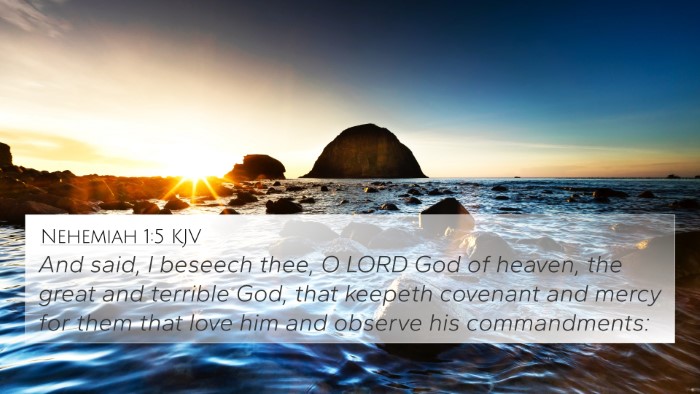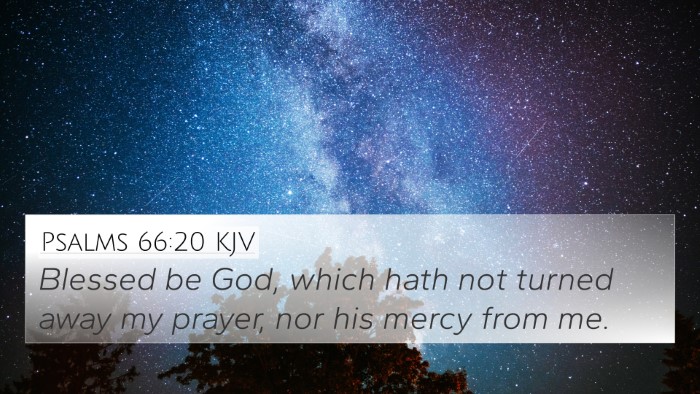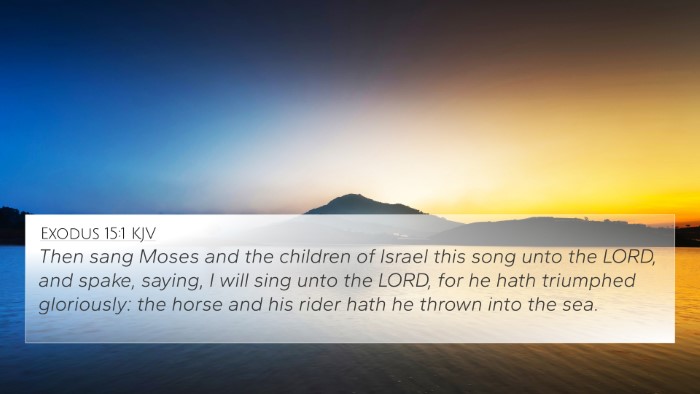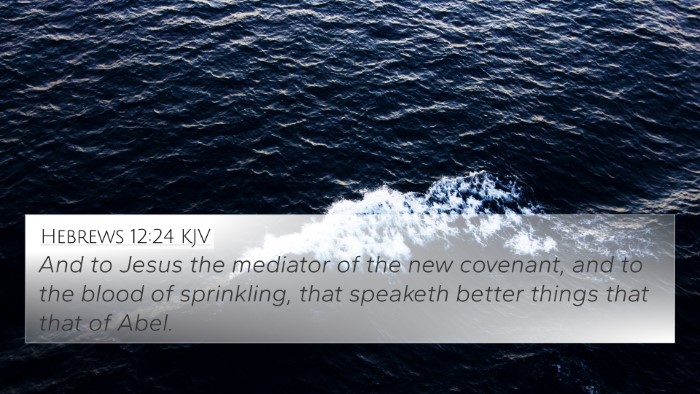Psalms 68:35 - Understanding the Meaning of the Verse
Psalms 68:35 states: "O God, thou art terrible out of thy holy places: the God of Israel is he that giveth strength and power unto his people. Blessed be God." This verse encapsulates a theme of divine majesty and power, emphasizing God's omnipotence and His gracious provision for His people.
Verse Summarization and Commentary Insights
This verse has been a focal point for several commentaries, highlighting various aspects of its meaning. Here, we provide a summary based on insights from Matthew Henry, Albert Barnes, and Adam Clarke.
General Themes
- Majesty and Awe: The word "terrible" reflects God's awesome presence, inspiring awe and reverence among His people. This resonates with the portrayal of God as a figure beyond human comprehension.
- Divine Strength: The verse acknowledges God as the source of strength and power for His people, signifying His active role in equipping them for their challenges.
- Holiness of God: The mention of God's "holy places" underlines the sacred nature of God's presence, distinguishing it from ordinary experiences.
- Blessing and Gratitude: The concluding blessing affirms recognition and gratitude towards God for His gifts, encapsulating the appropriate human response to divine generosity.
Matthew Henry's Insights
Henry posits that the majesty of God is evidenced in both His creation and His interactions with humanity. The holy places refer to both the tabernacle and Zion, where God made His presence known among His people. Additionally, Henry elucidates that God's provision of strength is both physical and spiritual, enabling believers to endure and thrive in their mission.
Albert Barnes' Commentary
Barnes notes the comprehensive nature of God's strength as it is imparted to His people. He highlights how the verse serves as a reminder of God's consistent involvement in the struggles of His followers, equipping them to overcome challenges. Additionally, the call to worship ("Blessed be God") is both a communal and individual declaration of faith and gratitude.
Adam Clarke's Perspective
Clarke focuses on the ways in which the term "terrible" reflects God's reverence and holiness. He articulates that God's power not only sustains life but also prompts a response of worship from His people. Clarke also emphasizes the psychological comfort readers can find in the knowledge that God provides strength and power, enriching their lives and endeavors.
Cross References
Psalms 68:35 connects with several other scriptures that further illuminate its themes:
- Psalms 27:1: "The LORD is my light and my salvation; whom shall I fear?" - This verse stresses God’s role as a protector and source of strength.
- Psalms 46:1: "God is our refuge and strength, a very present help in trouble." - Reinforcing the message of God’s provision during times of distress.
- Isaiah 40:29: "He giveth power to the faint; and to them that have no might he increases strength." - Demonstrating God’s ability to empower the weak.
- Philippians 4:13: "I can do all things through Christ which strengtheneth me." - The New Testament counterpart emphasizing empowerment through Christ.
- 2 Corinthians 12:9: "My grace is sufficient for you, for my power is made perfect in weakness." - Further expanding on the theme of divine strength in weakness.
- Acts 1:8: "But ye shall receive power, after that the Holy Ghost is come upon you." - Connection to empowerment through the Holy Spirit.
- Ephesians 3:20: "Now unto him that is able to do exceeding abundantly above all that we ask or think, according to the power that worketh in us." - Affirming God's power at work within believers.
Connections and Thematic Analysis
The inter-biblical dialogue seen in Psalms 68:35 and the accompanying references illustrates a consistent theme of God's involvement and support for His people. Understanding these connections can enhance personal Bible study and interpretation.
Tools for Cross-Referencing
Utilizing a Bible concordance or a Bible cross-reference guide can greatly aid in finding and understanding these connections. These tools allow for a comparative study of themes, enriching our grasp of Biblical narratives and teachings.
To effectively engage these texts, it is helpful to consider how to use Bible cross-references to explore deeper meanings, identify parallels, and conduct a comprehensive Bible cross-reference analysis. This approach leads to a holistic understanding of scripture, particularly in discovering Bible verses that relate to each other.
Conclusion
Psalms 68:35 encapsulates profound truths about God’s majesty, strength, and provision. Through tools such as cross-referencing, readers can explore the rich tapestry of scripture and deepen their understanding of God's word.






















